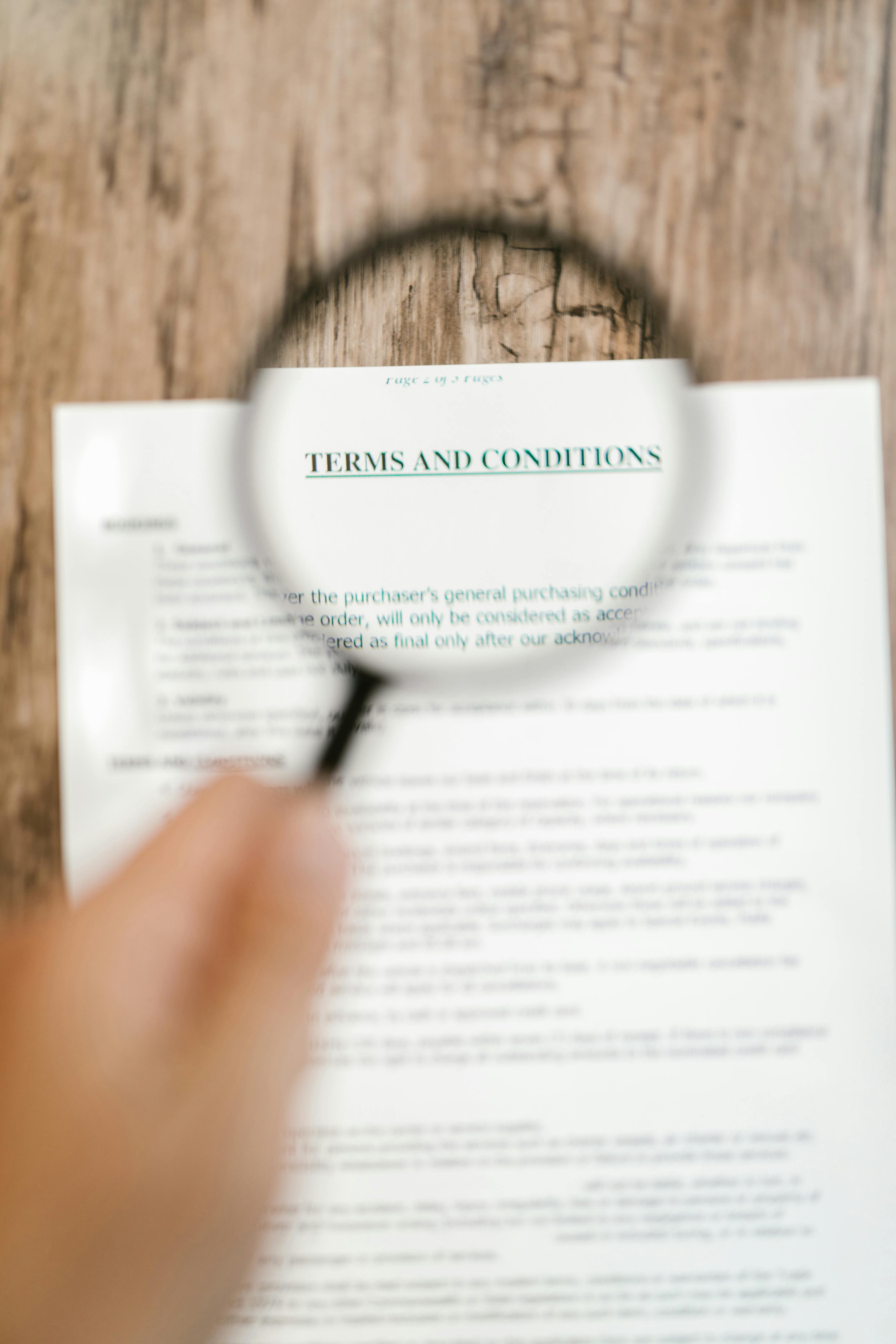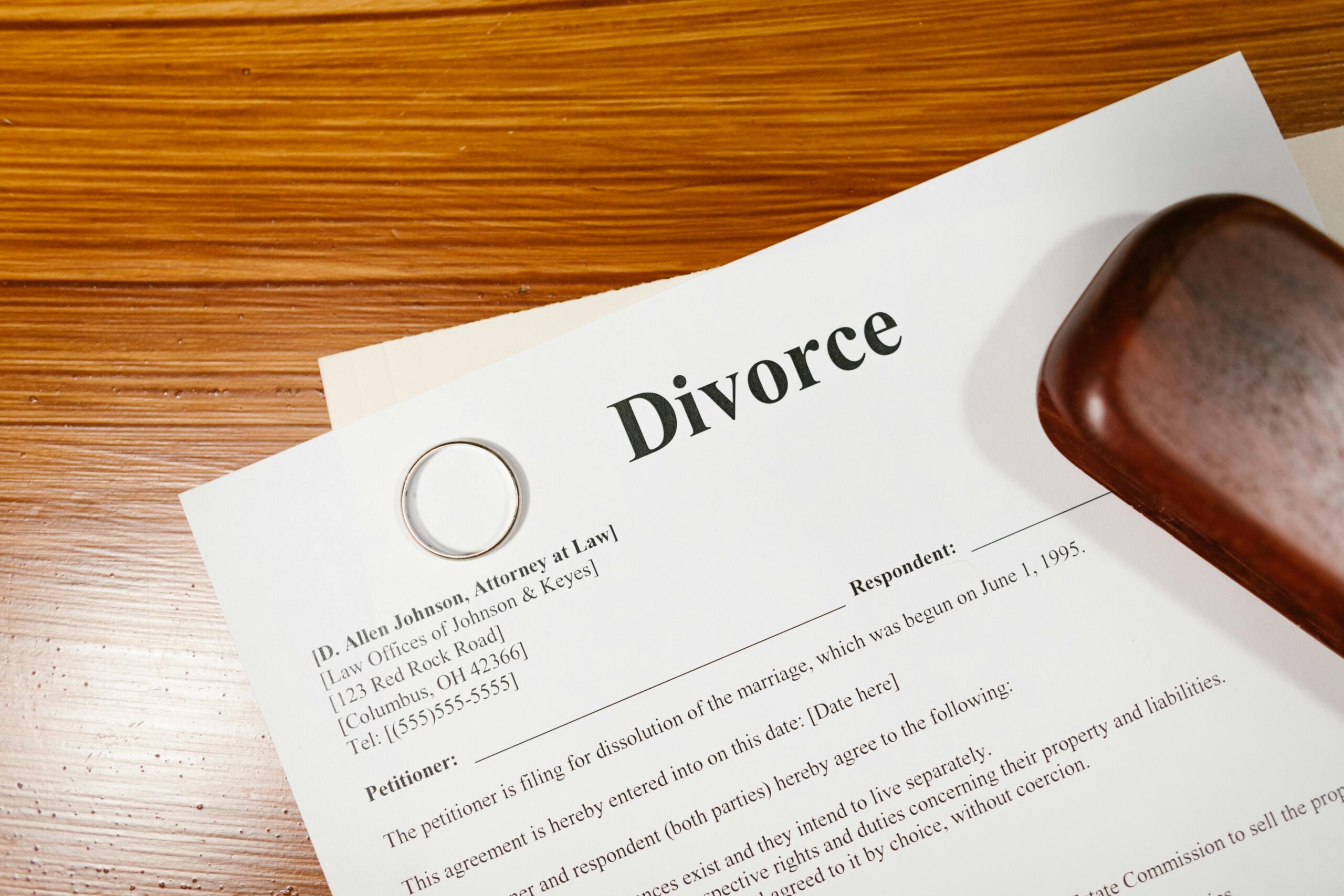In today’s digital age, where social media reigns supreme, the lines between free speech and defamation can get blurry. Have you ever wondered how to prove defamation or verbal abuse? Many individuals find themselves victims of harmful statements that can tarnish their reputations and impact their lives. The journey to justice often begins with understanding the key elements of a defamation case, which includes proving that a false statement was made, it caused harm, and it was made with negligence or malice. But what are the exact steps to take? What evidence do you need to gather? In this blog post, we’ll explore the nuances of proving verbal abuse in various contexts, including personal and professional settings. You’ll discover essential tips on documenting incidents, collecting witness statements, and working with legal professionals to strengthen your case. If you’re facing the challenges of defending your name against false allegations, keep reading to uncover the secrets to effectively navigating this complex legal landscape. Don’t let misinformation ruin your life—empower yourself with knowledge and take action!
Understanding Defamation: What Constitutes Verbal Abuse in Legal Terms?

How to Prove Defamation or Verbal Abuse?
So, you’ve been called a name or two, and now you’re thinking about how to prove defamation or verbal abuse? Well, you might not be alone in this messy situation, and honestly, it can be a bit tricky. I mean, it’s like trying to find a needle in a haystack sometimes, right? Maybe it’s just me, but I feel like a lot of folks don’t really know where to start.
Understanding Defamation and Verbal Abuse
Before we dive into the nitty-gritty of how to prove defamation or verbal abuse, let’s break down what they even are. Defamation generally refers to false statements that harm someone’s reputation. There’s two types: libel (written) and slander (spoken). On the other hand, verbal abuse usually involves harsh language, insults, or derogatory remarks that can hurt someone emotionally. Not really sure why this matters, but understanding the difference can help you figure out your next steps.
Key Elements of Defamation
To prove defamation, you gotta establish a few key elements:
- False Statement: You need to show that the statement made was, in fact, false. If it’s true, well, good luck with that, right?
- Publication: The statement needs to be communicated to a third party. So, if your boss says something nasty only to you, it might not count as defamation.
- Harm: This is where it gets a bit subjective. You gotta prove that the statement caused you some kind of harm, like losing your job or getting kicked out of the local coffee shop.
- Fault: Depending on your status (public figure or private citizen), you might need to prove negligence or actual malice. Public figures have it a bit tougher.
Steps to Take
Okay, so you think you’ve got a case? Here’s a quick rundown of steps you can take.
1. Gather Evidence
You’re gonna need evidence, like photos, screenshots, or audio recordings. You know, the kind of stuff that makes you feel like a detective. Maybe you need a table for this. Here’s what to collect:
| Type of Evidence | Description |
|---|---|
| Written Statements | Emails, texts, or social media posts. |
| Witnesses | People who heard or saw the statement. |
| Medical Records | If you suffered emotional distress. |
| Employment Records | Proof of job loss or demotion. |
2. Document Everything
Journaling, folks! Write down everything related to the incident. Like, what was said, when, and to whom? This can be helpful later on. And trust me, having a timeline can make your case a whole lot clearer.
3. Look for Patterns
If you’ve been verbally abused multiple times, that could strengthen your case. You might wanna jot down incidents that keep happening. Maybe it’s just me, but I feel like patterns can be super telling.
Legal Considerations
Now, before you go running to a lawyer, keep in mind that not all cases of verbal abuse or defamation will hold water in court. It’s gonna depend on a ton of stuff, including the jurisdiction you’re in. Some states have stricter laws than others, so do your homework. You wouldn’t wanna waste time and money on a lost cause, right?
Consulting a Lawyer
Alright, let’s be real here. If you’re seriously considering taking action, you should talk to a lawyer who specializes in defamation cases. They can help you understand your options and guide you on how to prove defamation or verbal abuse legally.
Questions to Ask Your Lawyer
- What are the chances of winning my case?
- How long will this process take?
- What kind of evidence do I need?
- What’s the estimated cost?
Just remember, they’re not mind readers. You gotta be upfront about your situation.
Final Thoughts
So, proving defamation or verbal abuse isn’t exactly a walk in the park. It’s more like a challenging hike where you might trip on a few rocks along the way. But if you’re determined, and you’ve got the proper evidence, you can find your way through this legal jungle. And hey, if nothing else, you’ll have a wild story to tell at parties, right?
Just keep your head up, document everything, and consider getting some legal help if things get hairy. After all, no one deserves to be dragged through the mud without a fighting chance. Good luck!
Step-by-Step Guide: How to Collect Evidence for Defamation Claims

How to Prove Defamation or Verbal Abuse? A Guide for the Rest of Us
So, you’ve been called names, or maybe someone spread nasty rumors about you? Not really sure why this matters, but it’s important to know how to prove defamation or verbal abuse. It can feel like a total mess, right? Let’s dive into this topic and break it down a bit.
What is Defamation Anyway?
Defamation is when someone makes a false statement that hurts your reputation. This can be written (libel) or spoken (slander). Verbal abuse, on the other hand, is when someone uses words to belittle, threaten, or harm another person. It’s like being emotionally punched in the gut. It can be really hard to prove if you don’t know what you’re doing.
Key Elements to Prove Defamation
When trying to prove defamation, there’s some key elements you gotta keep in mind. Here’s a little checklist for ya:
- False Statement: The statement made must be false. If it’s true, well, you’re outta luck.
- Publication: The statement must have been made to at least one other person besides you. If it’s just between you and the accuser, it’s not defamation.
- Harm: You must show that the statement harmed you, like losing a job or damaging your reputation.
- Negligence or Actual Malice: Depending on your status (public figure vs. private citizen), you might need to prove that the person who made the statement was negligent or acted with actual malice.
Gathering Evidence: It’s Like a Game of Clue
Now, how do you prove all this? It’s kinda like being a detective, which is fun, right? Here’s what you need to do:
- Collect Evidence: Get all the evidence you can. This includes screenshots, emails, voice messages, or anything that proves the statement was made.
- Witnesses: If there were people around who heard the statement, get their contact info. They might be able to help back you up.
- Documentation: Keep records of how the statements affected you. It could be medical records, job loss letters, or that sad email you sent to your best friend about feeling low.
Proving Verbal Abuse: Not Just Words
Now, proving verbal abuse is a whole different ball game. It’s not always about what was said but how it made you feel. Here’s some pointers:
- Pattern of Behavior: Look for a pattern. If someone is constantly belittling you, that’s a sign of verbal abuse.
- Emotional Impact: Document how the verbal abuse affected your mental health. It’s like keeping a diary but for the tough stuff.
- Witness Accounts: Again, if others witnessed the abuse, their testimonies can be very helpful.
Legal Steps: Time to Get Serious
If you’re thinking about taking legal action, here’s the steps you might consider. It’s not a walk in the park, but hey, life’s not perfect:
- Consult a Lawyer: Find someone who specializes in defamation or verbal abuse. They can give you advice based on your situation.
- File a Complaint: If you’re ready to take action, your lawyer will help you file a complaint. This is when the ball really starts rolling.
- Mediation or Court: Sometimes, defamation cases can be settled out of court. But if not, you might have to go in front of a judge. Yikes!
Emotional Toll: It’s Okay to Feel
Let’s be real. Dealing with defamation or verbal abuse can be super draining. It’s totally okay to feel overwhelmed. Maybe it’s just me, but I feel like a lot of folks don’t realize how much this stuff can mess with your head. Seek support from friends, family, or even a therapist. You don’t have to go through this alone.
Conclusion
So, there you have it. Knowing how to prove defamation or verbal abuse isn’t exactly easy, but it’s doable. It takes time, evidence, and a bit of courage. Just remember, you’re not alone in this fight. Many people have been where you are, and you can come out the other side stronger. If you ever feel like you’re drowning in this mess, just take a step back, breathe, and remember that you’re fighting for your voice and your dignity. Good luck!
5 Key Elements You Must Prove to Win a Defamation Lawsuit

How to Prove Defamation or Verbal Abuse?
So, you’ve been wronged. Someone out there decided to spread some nasty rumors or maybe they’ve just been, you know, verbally abusing you. And now your brain’s like, “How on Earth do I even prove defamation or verbal abuse?” Not really sure why this matters, but it’s a valid question. Let’s dive into this mess together, shall we?
Understanding Defamation and Verbal Abuse
First off, let’s clear the air. Defamation is when someone says false stuff that damages your reputation, right? It can be spoken (that’s slander) or written (which is libel, if you want to get all fancy with terms). On the other hand, verbal abuse is a bit different. It involves using words to hurt or control someone. It’s like emotional punching, if you will.
Elements of Defamation
To prove defamation, you gotta tick off a few boxes. Here’s what you need:
- False Statement: The statement made about you has to be false. If it’s true, then good luck claiming defamation.
- Publication: Someone else had to hear or see the statement. If it’s just between you and the accuser, that doesn’t count.
- Harm: You gotta show that this false statement harmed your reputation (or maybe even caused you some financial losses, ouch).
- Fault: Depending on your status (like public figure vs. private citizen), you might need to prove that the person acted with “actual malice” or just negligence.
Verbal Abuse Elements
Now, verbal abuse is a bit trickier because it may not have legal definitions like defamation does. But, if you’re looking to prove it, consider these points:
- Pattern of Behavior: One mean comment isn’t gonna cut it. You need a pattern of verbal attacks to show it’s abuse.
- Impact: You need to talk about how it affected you. Did it cause anxiety, depression, or made you feel worthless? Yeah, that stuff counts.
- Witnesses: If people heard or saw the abuse, that’s golden! Having witnesses can help back up your claims.
Gathering Evidence
Alright, so you got your ducks in a row. Now, what? You gotta gather evidence. Here’s a nifty list of what you can do:
- Document Everything: Keep a record of what was said, when, and where. You might wanna save emails, texts, or social media posts too.
- Witness Statements: If there were people around when the verbal abuse happened, ask them to write down what they saw.
- Medical Records: If you went to therapy or a doctor because of the abuse, those records could help your case.
- Recording: If it’s legal in your state, record conversations (with consent, of course) to have some proof.
Table: Types of Evidence for Defamation and Verbal Abuse
| Type of Evidence | Defamation | Verbal Abuse |
|---|---|---|
| Written Statements | Emails, social media posts | Notes from conversations |
| Witness Testimony | People who heard the statement | Friends or family who witnessed it |
| Medical Records | Impact on your mental health | Therapy sessions |
| Digital Evidence | Screenshots of harmful content | Voice recordings (if legal) |
Legal Steps to Take
So, you got your evidence. What’s next? Maybe it’s just me, but I feel like you should consult a lawyer. Seriously. They can guide you through the legal maze. Here are some steps you might wanna think about:
- Consult a Lawyer: Find someone who specializes in defamation or personal injury.
- Cease and Desist Letter: Your lawyer might suggest sending a letter to the person, telling them to stop spreading lies.
- File a Lawsuit: If things don’t get resolved, you might have to take it to court.
The Emotional Toll
Now, let’s not forget about the emotional roller coaster you’re on. Proving defamation or verbal abuse can be exhausting. It’s not just about the legal stuff; it’s about your mental health too. Make sure you’re taking care of yourself throughout this process. Talk to friends, seek support, and don’t hesitate to reach out for professional help.
Conclusion
In the end, proving defamation or verbal abuse isn’t a walk in the park. It takes time, effort, and a whole lot of patience. Just remember, you’re not alone in this. With the right evidence and support, you can stand up
Verbal Abuse vs. Defamation: What’s the Difference and Why It Matters?

How to Prove Defamation or Verbal Abuse?
So, you’ve been wronged, right? Maybe someone said something nasty about you, or you’ve been the target of some serious verbal abuse. Whatever the case may be, proving defamation or verbal abuse isn’t as cut and dry as one might think. Not really sure why this matters, but understanding how to navigate this murky waters can be crucial for your peace of mind. Let’s dive in, shall we?
What’s Defamation Anyway?
First off, you gotta know what defamation actually is. In simple terms, it’s when someone spreads false information about you that damages your reputation. There’s two types: slander (spoken) and libel (written). Just think of it like gossip but on steroids, ya know?
To prove defamation, you gotta cover a few bases:
- False Statement: The statement made must be false. If it’s true, sorry, no defamation case.
- Publication: The statement has to be shared with someone other than you. If your best friend whispers it to you, well, that doesn’t count.
- Harm: You must show that the false statement harmed your reputation in some way. Like, did you lose a job opportunity or friends over this?
- Fault: Depending on your status (public figure or private citizen), you may need to prove that the person who made the statement acted with negligence or actual malice.
It sounds like a lot, huh? Well, welcome to the world of law.
Verbal Abuse: Not Just Playground Bullying
Now, let’s talk about verbal abuse. This one’s a bit trickier because it’s not always about false statements; it can be just downright nasty words or behavior that belittles someone. Things like constant criticism, threats, or humiliation can all fall under this umbrella. Maybe it’s just me, but I feel like we all know someone who can turn a casual chat into a verbal warzone.
To prove verbal abuse, you might need to gather some evidence. Here’s a handy checklist:
| Evidence Type | What to Look For |
|---|---|
| Witnesses | Anyone who heard the abuse can back you up. |
| Documentation | Keep records of incidents, dates, and what was said. |
| Audio/Video | If it’s safe and legal, recordings can be gold. |
| Professional Help | A therapist’s notes could support your claims. |
Collecting Evidence: The Detective Work Begins
Alright, so you know you’ve been defamed or verbally abused. What now? Time to channel your inner Sherlock Holmes. Or, you know, just be a regular person armed with a smartphone.
- Document Everything: Write down what happened, when, and who was there. Don’t just shrug it off – memories can get fuzzy over time.
- Get Witness Statements: Talk to anyone who witnessed the incidents. Their words can hold weight in court, especially if they can say, “Yeah, I heard that jerk say that.”
- Save Messages: If it’s a text or social media post, screen grab it. Like, don’t let that slip into the abyss of the internet.
- Seek Professional Help: Sometimes, it’s worth talking to a therapist. Not only can it help you emotionally, but they can document your experiences too.
Legal Action: The Big Guns
If things get serious and you’re thinking about bringing in the big guns (lawyers), you’ll want to consider a few things:
- Consult a Lawyer: A good lawyer can help you navigate the legal maze. They’ll know about how to prove defamation or verbal abuse in your specific situation.
- Costs: Legal stuff can get pricey, so make sure you know what you’re getting into.
- Timeframe: Lawsuits can take forever, so patience is key – unless you’re like me and have the attention span of a goldfish.
The Bottom Line
So, in a nutshell, proving defamation or verbal abuse isn’t just about saying, “Hey, that hurt my feelings!” You gotta bring the heat with evidence and possibly legal help. It can feel like climbing a mountain, and maybe you’ll stumble a few time along the way, but don’t lose hope.
Remember, it’s totally okay to seek help and stand up for yourself. You deserve to be treated with respect, and if someone’s trampling all over that, they need to be held accountable. Don’t let anyone dull your sparkle, alright?
The Importance of Documentation: How to Record Instances of Verbal Abuse

How to Prove Defamation or Verbal Abuse?
So, you think you might have been a victim of defamation or verbal abuse, huh? Not really sure why this matters, but it can be a big deal. I mean, who likes being called names or having their reputation dragged through the mud? Let’s dive into how you can prove that someone’s been running their mouth about you in a not-so-nice way.
Understanding Defamation and Verbal Abuse
First off, let’s break it down a bit. Defamation is when someone makes a false statement about you that harms your reputation. This could be in writing (slander) or spoken (libel). On the other hand, verbal abuse is more about the emotional side of things, like insults or threats. Both can be damaging in their own way.
Here’s a quick chart for ya:
| Term | Definition | Example |
|---|---|---|
| Defamation | False statement that harms reputation | “She’s stealing money from the company!” |
| Verbal Abuse | Insults or threats that harm emotional well-being | “You’re worthless, and nobody likes you!” |
Gather Evidence
Okay, so you’re probably wondering, “How in the world do I prove this?” Well, step one, gather evidence. You’ll need to show that the statement made was false and caused you harm. This isn’t just for kicks; it’s like building a case. Maybe it’s just me, but I feel like people don’t understand how much evidence matters.
Types of Evidence
Here’s some types of evidence you might need:
- Witness Testimonies: If someone heard the nasty comments, get them to back you up!
- Screenshots: If it’s online, take screenshots. Trust me, this will save you time.
- Emails/Texts: If there’s a paper trail, you’re golden.
- Medical Records: If the verbal abuse affected your mental health, this can show impact.
Documentation is Key
Don’t just shrug it off. Keep a record of everything. Dates, times, and exactly what was said. It’s annoying, I know, but you’ll thank yourself later when you have this stuff written down.
Proving the Statement is False
Now, proving it’s false can be tricky. You’ll need to show that the statement made about you wasn’t true. Maybe it’s just me, but I feel like a lot of people don’t even know what “truth” means in these contexts.
Examples of False Statements
- Someone says you cheated at work.
- A rumor spreads that you’re a criminal when you’re not.
It’s gotta be shown that these statements are not just a difference of opinion but actually false.
Truth as a Defense
Here’s a kicker: if the accused can prove what they said is true, you’re kinda outta luck. Truth is a defense against defamation. So, if they say, “Oh, I saw them doing that,” and it’s true? Yeah, good luck with that one.
Showing Harm
Next up, you’ll need to demonstrate how this has affected you. Maybe you lost your job, your friends, or just your sanity. Documenting this impact is crucial. Here’s a quick list of things to consider:
- Lost Income: If you were fired or couldn’t get hired because of it.
- Emotional Distress: If you’re feeling down, get some help and document it.
- Reputation Damage: If people started treating you differently.
Intent and Negligence
This part can be a bit murky. You might need to show that the person acted with “actual malice” or at least with negligence. Actual malice is a fancy term that means they knew what they were saying was false, or they didn’t care.
Negligence Factors
- Was there any research done before spreading the word?
- Did they have a reason to doubt the truth of the statement?
- Were they reckless with the info they shared?
Legal Assistance
Alright, so here’s the deal. You may want to get a lawyer involved. I know, lawyers can be expensive, but if you’re serious about this, it might be worth it. They can help you navigate the tricky waters of the law.
Finding the Right Lawyer
- Look for someone who specializes in defamation law.
- Check reviews, and maybe even ask for some references.
- Don’t be afraid to shop around — find someone who gets you!
Conclusion
In the end, proving defamation or verbal abuse isn’t a walk in the park. It takes time, effort
Navigating the Legal Process: Filing a Defamation Lawsuit in [Your State]
![How to Prove Defamation or Verbal Abuse: Key Steps Uncovered 6 Navigating the Legal Process: Filing a Defamation Lawsuit in [Your State]](https://images.pexels.com/photos/6667676/pexels-photo-6667676.jpeg)
How to Prove Defamation or Verbal Abuse?
Defamation or verbal abuse, it’s like the ugly cousin of freedom of speech, right? Not really sure why this matters, but when someone drags your name through the mud, it can be infuriating. So, how do you prove that someone’s been slinging mud at you, huh? Let’s dive into the nitty-gritty of how to prove defamation or verbal abuse. Grab a snack; this might take a minute.
What is Defamation Anyway?
First off, let’s clear things up. Defamation is when someone makes false statements that harm your reputation. It can be in written form (that’s libel) or spoken (that’s slander). So, if your neighbor says you’re running a illegal dog-fighting ring (which you’re not, obviously), that could be slander. But if they posted it on social media, well, that’s libel. Crazy world we live in, right?
Elements of Defamation
To actually prove defamation, you gotta check off a few boxes. Here’s a handy little list:
- False Statement: They gotta make a statement that ain’t true.
- Publication: The statement must be made public, like on social media, or in a gossip column.
- Harm: You gotta show that it harmed your reputation. Maybe you lost a job or a friend because of it.
- Fault: Depending on your status (public figure vs. private individual), you might need to prove that they acted with negligence or actual malice. Confusing, right?
Gathering Evidence
Okay, so, you know the basics. But how do you grab the evidence? Here’s some ideas:
- Screenshots: Grab those social media posts. They might disappear, but not if you got a screenshot.
- Witnesses: Anyone hear them say that nasty stuff? Get them to write down what they heard.
- Documents: If you lost a job, keep your termination letter. That’s gold.
| Evidence Type | Examples | Importance |
|---|---|---|
| Screenshots | Social media posts | Proves public statement |
| Witness Testimonies | Friends or coworkers who heard it | Support your claims |
| Official Documents | Emails, termination letters | Shows harm |
Proving Verbal Abuse
Now, what about verbal abuse? It’s a bit trickier since it’s often more about the context and less about the words themselves. You might be thinking, “Isn’t verbal abuse just harsh criticism?” Well, yeah, but it’s a bit more than that. It’s comments that intimidate, threaten or belittle you, and sometimes, it’s like being in a bad horror movie.
How to Prove It?
First, document everything! Seriously, write down what was said, when, and where. If you got the chance, record the conversations. Just make sure it’s legal in your state. Here’s a simple breakdown of what to do:
- Keep a Journal: Note down incidents, like a diary. It’ll help you remember the details later.
- Get Witnesses: Same as with defamation. Anyone who can back you up? Great!
- Patterns of Behavior: If it’s happening regularly, that’s a pattern you can point to.
Legal Considerations
If you’re serious about going after that defamer or abuser, you might wanna consult a lawyer. But, like, not just any lawyer—find one who knows about defamation and verbal abuse laws. They can help you navigate the murky waters of the legal system. It’s like trying to find a needle in a haystack, but hey, it could be worth it.
Potential Outcomes
So, what could actually happen if you prove your case? Well, here’s a few possible outcomes:
- Monetary Damages: You could get some cash, which is nice.
- Injunctions: The court could order the person to stop making those statements.
- Public Apology: Wouldn’t it be sweet to see them eat crow publicly?
Conclusion
To wrap things up, proving defamation or verbal abuse ain’t exactly a walk in the park. It takes time, effort, and a bit of grit. But if your reputation’s on the line, it might just be worth it. Just remember to gather all your evidence, keep your cool, and maybe consult with a legal expert. Because, let’s face it, navigating the world of slander and verbal attacks is like trying to play chess in a tornado—definitely a challenge,
Witness Testimonies: How Eyewitness Accounts Can Strengthen Your Case

How to Prove Defamation or Verbal Abuse?
So, ya woke up one day and found out that someone’s been spreading some nasty rumors about you, right? Or maybe someone just had a bad day and decided to unleash a verbal torrent that left you feeling like dirt. It’s a tough situation, and proving defamation or verbal abuse isn’t exactly a walk in the park. But let’s dive into this mess.
Understanding Defamation and Verbal Abuse
First off, let’s break down what we mean by defamation and verbal abuse. Defamation, it’s like this umbrella term for when someone says something false about you that hurts your reputation. And verbal abuse? Well, that’s when someone uses words to hurt you emotionally. Not really sure why this matters, but if you’re looking to prove it, you gotta know the difference, right?
| Term | Definition |
|---|---|
| Defamation | False statements made about someone that harm their reputation. |
| Verbal Abuse | Using words to demean, belittle, or control someone. |
Proving Defamation
Alright, let’s get down to brass tacks. In order to prove defamation, you gotta check off a few boxes:
False Statement: The first thing ya need is a statement that’s not true. If someone says you’re a terrible cook and you actually make a mean lasagna, well, there ya go.
Published to a Third Party: This means someone else heard or read it. Like, if your neighbor yells it across the street, that counts, but if it’s just whispered in a corner, not so much.
Injury to Reputation: You gotta show that this statement made people think less of you. Maybe you lost a job opportunity or a friend decided they didn’t wanna hang out anymore. That stings, huh?
Fault: Depending on the situation, you may have to prove that the person who made the statement acted with negligence or actual malice. It’s like, did they know it was false and still spread the word? That’s a whole different ball game.
Proving Verbal Abuse
Now, proving verbal abuse is a bit different. It’s not always about legal battles but it’s about recognizing the patterns. Here’s a couple of things to consider:
Pattern of Behavior: One mean comment might just be a bad day, but if they constantly berate you, that’s a problem. You gotta look for patterns like a detective, ya know?
Impact on Mental Health: This can be hard to quantify, but if their words leave ya feeling anxious or depressed, that’s serious stuff. Maybe it’s just me, but I feel like emotional scars are just as real as physical ones.
Witnesses: If someone else heard or saw the verbal abuse, that can really help your case. It’s like having a buddy to back ya up in a tough spot.
Gathering Evidence
Okay, so you’ve figured out what’s what. Now, how do you gather proof? Here’s some practical tips:
Document Everything: Keep a journal or record the incidents. Write down dates, times, and what was said. It’s like your own personal diary of doom.
Collect Witness Statements: If someone saw or heard the abuse, ask them to write down what they experienced. It’s like having a witness in your corner.
Screenshots and Messages: If it’s online, take screenshots. Social media can be a breeding ground for defamation, and having that evidence can be golden.
Legal Steps to Take
If you’re serious about pursuing this, you might wanna think about legal action. Here’s a quick rundown of steps you could take:
| Step | Description |
|---|---|
| Consult an Attorney | Get professional advice to understand your options. |
| Send a Cease and Desist | This is a letter that says “stop it, or else!” |
| File a Lawsuit | If things don’t get resolved, you might have to take it to court. |
Conclusion
Proving defamation or verbal abuse ain’t easy, but it’s not impossible either. It takes time, patience, and a bit of detective work. And don’t forget, it’s totally okay to lean on friends or professionals for support. You’re not alone in this battle—there’s a whole army of folks who’ve been there, done that. So, whether you’re battling a bully or just dealing with some mean words, remember that you’ve got what it takes to stand up for yourself. And hey, if
Social Media and Defamation: Proving Online Verbal Abuse in Court

How to Prove Defamation or Verbal Abuse?
Okay, so let’s dive into this whole idea of how to prove defamation or verbal abuse. You might be wondering “What’s the big deal?” and honestly, that’s a valid question. Not really sure why this matters, but if you’ve been wronged by someone’s words, you’ve probably thought about it. It can be super frustrating when someone spreads lies about you or just plain slanders your good name. So, let’s break it down a bit.
What’s Defamation, Anyway?
Defamation is when someone says something false about you that damages your reputation. There’s two types: slander (which is spoken) and libel (which is written). So, if someone went around telling folks that you’re a terrible chef (when you’re actually Gordon Ramsay in disguise), that’s slander. If they wrote it online, well, that’s libel.
Key Elements of Defamation
To prove defamation, you gotta show a few things. Here’s a quick list for ya:
- False Statement: The statement must be false. If it’s true, then, well, you’re kinda outta luck.
- Publication: It needs to be shared with someone other than you. Gossip counts, folks.
- Fault: You gotta show that the person who said it was at fault, either knowingly or negligently.
- Damages: Finally, you need to prove that the statement caused you harm, like loss of job or a ruined reputation.
Seems pretty straightforward, right? But here’s the kicker, you gotta navigate through a legal web that’s more tangled than a bowl of spaghetti.
Verbal Abuse vs. Defamation
Now let’s chat about verbal abuse. This is when someone uses words to hurt or intimidate another person. It’s not exactly the same as defamation because it doesn’t necessarily involve false statements or public dissemination. It can be more about creating a toxic environment, like that one uncle who always brings up your embarrassing high school moments at family gatherings.
Proving Verbal Abuse
Proving verbal abuse can be tricky. You might think, “How do I even prove someone yelling at me is abuse?” Well, here’s a few things you can do:
- Document Everything: Keep a record of what was said, when, and where. It’s like collecting evidence for a crime, except the crime is just plain meanness.
- Witnesses: If someone else heard the abuse, get them to back you up. They could be your best ally, or just a friend who can corroborate your story.
- Patterns of Behavior: If this is a recurring issue, document the patterns. Like, if your boss yells at you every Tuesday, that’s a pattern.
The Emotional Toll
Let’s not forget the emotional toll this can take. Not to be dramatic, but verbal abuse can feel like a weight on your chest. You might feel anxious or depressed, and that’s totally valid. Maybe it’s just me, but I feel like people don’t talk about this enough. It’s not just about proving something in court; it’s about your mental health too.
Legal Steps to Take
If you think you’ve got a case for defamation or verbal abuse, here’s a simple flowchart of what to do next:
- Collect Evidence: Gather your proof, like screenshots or recordings.
- Consult a Lawyer: Talk to someone who knows the law better than your average Joe.
- Consider Mediation: Maybe it’s possible to settle things without going to court.
- File a Lawsuit: If all else fails and you’re feeling brave, this is your final option.
| Step | Action | Notes |
|---|---|---|
| Collect Evidence | Gather proof | Screenshots, recordings, emails, etc. |
| Consult Lawyer | Seek legal advice | Find someone specializing in defamation |
| Mediation | Try to settle | Less stressful than court |
| File Lawsuit | Take legal action | Requires solid evidence and patience |
Conclusion
So there you have it! The lowdown on how to prove defamation or verbal abuse. It can be a tough road, but knowing what you need to prove and how to document it is half the battle. Just remember, whether it’s defending your reputation or standing up to verbal abuse, you’re not alone in this fight. It’s totally okay to seek help, because let’s face it, life’s too short to let someone’s nasty words get the best of you.
And who knows? Maybe
Understanding Damages: How to Calculate Your Losses from Defamation

How to Prove Defamation or Verbal Abuse?
So, you’ve found yourself in a situation where someone’s gone and said some really nasty things about you, huh? Not really sure why this matters, but proving defamation or verbal abuse can be a total headache. It’s like trying to untangle a bunch of Christmas lights, but instead of lights, you got a whole mess of legal jargon and emotional turmoil. In this article, we’ll break down some steps to help you figure out how to navigate this tricky terrain.
What Even is Defamation?
First off, let’s clear that up. Defamation is basically when someone makes a false statement about you that harms your reputation. There’s two types of defamation: libel (written) and slander (spoken). If you’re dealing with verbal abuse, you might be leaning more towards slander since it’s all about the spoken word. But, hey, I’m no lawyer, so take this with a grain of salt.
Key Elements to Prove Defamation
To prove defamation or verbal abuse, you gotta show a few key things. Here’s a quick list to keep things simple:
- False Statement: The statement made about you is false. Yeah, if it’s true, then it’s not defamation, is it?
- Publication: The statement was made to a third party. So, if someone just whispered it into a void, it doesn’t count.
- Harm: You gotta show that this statement caused you some sort of harm. Think emotional distress, loss of job, or maybe your reputation took a hit.
- Fault: Depending on your status (public figure vs. private citizen), you might have to show that the person acted with negligence or actual malice.
Gathering Evidence
Okay, so you’re gonna need some evidence to back up your claims. Here’s some stuff you can do:
- Collect Statements: If someone said something horrible to you, write it down. Get the exact words if you can. It’s like trying to catch a fish with your bare hands — not easy, but totally necessary.
- Witnesses: If there were people around when the awful thing was said, get them to back you up. A witness can be like a cherry on top of your defamation sundae.
- Document Everything: Keep a record of any communications related to the incident. Texts, emails, social media posts — they all count. Just don’t forget to back them up somewhere safe, like that one drawer where you keep all your important stuff that you never look at.
Emotional and Psychological Harm
Now, proving emotional harm can be a bit trickier. Maybe it’s just me, but it seems like feelings are hard to quantify. But, you can still gather some evidence here:
- Therapist Statements: If you’ve been seeing a therapist or counselor, their notes can help. Just make sure they’re on board with sharing.
- Personal Testimony: Write down how you’ve felt since the incident. Like, did you lose sleep or feel anxious? Your personal story can be a powerful tool.
Legal Steps to Consider
If you’re really serious about this whole defamation or verbal abuse thing, you might wanna think about getting legal help. Here’s a quick checklist:
- Consult a Lawyer: Find someone who specializes in defamation cases. They can help you navigate the tricky waters of the law, and honestly, it’s hard to do this alone.
- Send a Cease and Desist Letter: Sometimes a little scare tactic can go a long way. A lawyer can draft this for you, telling the offender to knock it off.
- File a Lawsuit: If things don’t get better, you might have to take it to court. Just know, this can be a long and expensive process.
The Emotional Toll
Let’s be real for a second. Going through this stuff can take a toll on your mental health. You’re gonna feel all sorts of emotions like anger, sadness, and confusion. That’s totally normal. Maybe it’s just me, but I think it’s essential to take care of yourself during this time. Talk to friends, go for a walk, binge-watch your favorite show — whatever helps you decompress.
Final Thoughts
At the end of the day, proving defamation or verbal abuse isn’t just about the facts; it’s also about how it affects you. It’s like trying to solve a puzzle where some pieces are missing. You wanna make sure you’re putting the right pieces together, so you don’t end up with a mess.
So, if you find yourself in this situation, remember to take it one step at a time. Gather your evidence, seek legal advice, and
The Role of Intent: Why Proving Malice is Crucial in Defamation Cases

How to Prove Defamation or Verbal Abuse?
So, let’s say you’ve found yourself in a sticky situation where someone is talking smack about you. You’re probably thinking, “What in the world can I do about this?” Well, if you’re wondering how to prove defamation or verbal abuse, you’re not alone. Lots of people have been there, and it’s as frustrating as trying to fold a fitted sheet.
Understanding Defamation
First off, let’s clear the air about what defamation really is. It’s a fancy way of saying someone’s said something false about you that hurts your reputation. There’s two types of defamation: libel (written) and slander (spoken). If it’s verbal abuse, you’re mostly looking at slander, but, you know, the lines can get a little blurry.
- Libel: This is written defamation, like stuff posted on social media or in an article.
- Slander: This is spoken defamation, like someone gossiping about you at the coffee shop.
The Key Elements to Prove Defamation
To win a defamation case, you gotta show a few key things. It’s like putting a puzzle together, but half the pieces are missing. Here’s a simple breakdown:
A false statement: You need to prove that the statement made about you was not true. If it’s true, well, forget about it. It’s like trying to argue with a brick wall.
Publication: The statement has to have been made to someone else. If it’s just between you and the person, it doesn’t really count. It’s like whispering into a void.
Harm: You gotta show that this false statement harmed you in some way—like affecting your job, relationships, or mental health. If your life hasn’t changed, then proving defamation is gonna be as tough as nails.
Negligence or actual malice: Depending on whether you’re a public figure or a regular Joe, you might need to show that the other person acted with negligence or actual malice. Basically, did they know it was false or didn’t care?
Proving Verbal Abuse
Now, verbal abuse is a bit different. It’s not about reputation; it’s about the emotional harm caused by someone’s words. You might be asking yourself, “How do I even prove that?” Well, let me break it down for you:
Document Everything: Write down what was said, when it was said, and who was there. If you don’t have a record, it’s like trying to prove Bigfoot exists with no pictures.
Witnesses: If someone else heard the abuse, get them to back you up. Their testimony can be as valuable as gold.
Impact on Your Life: Show how the verbal abuse has affected you. Has it made you anxious? Depressed? If so, get a therapist to speak on it, because let’s be real, emotional scars can be just as nasty as physical ones.
Patterns of Behavior: If this is a repeated thing, document that too. If someone’s been verbally abusive over time, it just adds fuel to your fire.
Practical Insights
Here’s the deal: proving defamation or verbal abuse isn’t a walk in the park. It can be a long, winding road. So, here’s a little table for you to keep all this in check:
| Element | Defamation | Verbal Abuse |
|---|---|---|
| False Statement | Must prove statement is false | Not applicable |
| Publication | Must be shared with others | Not applicable |
| Harm | Must show damage to reputation | Must show emotional distress |
| Negligence | Public figures need to show malice | Not applicable |
| Documentation | Gather evidence of false statements | Keep records of incidents |
| Witnesses | Get others to testify | Same here, could be helpful |
The Bottom Line
So, maybe it’s just me, but I feel like proving defamation or verbal abuse can feel like climbing Mount Everest without any gear. But if you’ve got the right tools and a bit of grit, you can make it happen. Don’t forget to consult with an attorney who specializes in this stuff, because they can guide you through the legal maze.
In conclusion, keep your head up. Speak your truth, and don’t let the naysayers bring you down. Just remember, the journey may be tough,
Common Mistakes to Avoid When Claiming Defamation or Verbal Abuse

How to Prove Defamation or Verbal Abuse?
So, you’ve been wronged, huh? Someone’s been talking smack about you and now you’re left wondering how to prove defamation or verbal abuse. You’re not alone, not really sure why this matters, but it’s a big deal for many folks. Let’s dive into this tangled web of words and see if we can untangle it a bit.
What is Defamation Anyway?
Before we jump into proving anything, let’s get our terms straight. Defamation is saying something false about someone that can harm their reputation. It’s like throwing mud at a wall and hoping it sticks, except, you know, it’s usually more serious than that. There’s two main types: libel (written) and slander (spoken). If someone writes a nasty article about you or yells something mean in a crowded room, you might have a case.
Quick Table: Defamation vs. Verbal Abuse
| Term | Definition | Example |
|---|---|---|
| Defamation | False statement harming reputation | “He’s a thief!” (in a news article) |
| Verbal Abuse | Words used to manipulate, control, or hurt someone | “You’re worthless!” (in a relationship) |
Proving Defamation: The Lowdown
Alright, so how do you actually prove defamation? You gotta tick off some boxes, kinda like a checklist. Here’s the scoop:
False Statement: First thing’s first. You need to show that the statement made about you was false. If someone claims you did something you didn’t do, that’s a start.
Publication: It’s gotta have been shared with someone other than yourself. If it’s just between you and the person, it’s kinda like gossip at the coffee shop — not really actionable. But if they posted it online or told a bunch of people, now we’re talking.
Harm: You gotta prove that it actually hurt you. Lost jobs? Damaged relationships? Maybe your popularity plummeted like a rock? This is important, because if no one really cared, it’s like yelling into the void.
Negligence or Actual Malice: This is where it gets a bit complicated. If you’re a public figure, you gotta show that the person who said it knew it was false or acted with a reckless disregard for the truth. If you’re just an average joe, proving negligence might be easier.
Verbal Abuse: When Words Hurt
Now let’s talk about verbal abuse. It’s not just about saying mean things; it’s about the impact it has on you. If someone’s tearing you down emotionally, that’s not okay. But proving it can be tricky. You can’t just say, “Hey, they were mean!” You gotta document it.
Steps to Prove Verbal Abuse
Document Everything: Keep a record of what was said, when, and where. A simple note on your phone could be a lifesaver. Maybe it’s just me, but writing things down helps a ton.
Witnesses: If there were others around, they can back you up. Friends, co-workers, even random bystanders can add weight to your claims.
Patterns of Behavior: If it’s a repeated thing, like a bad soap opera, show that it’s not just a one-off incident. It’s kinda like proving a habit — if they’re consistently nasty, that’s a red flag.
Professional Help: Sometimes it helps to talk to a therapist or a counselor. They can provide documentation of the emotional impact. Plus, who doesn’t love a good chat, am I right?
Practical Tips
- Keep Everything: Emails, texts, voicemails — save it all. You never know when you’ll need it.
- Stay Calm: Responding with anger can backfire. It’s like tossing gasoline on a fire.
- Seek Legal Advice: If you’re serious about it, getting a lawyer who specializes in this stuff can be a game-changer. They know the ins and outs.
Conclusion: Know Your Worth
At the end of the day, proving defamation or verbal abuse is no walk in the park. It takes time, effort, and sometimes a bit of emotional resilience. But if you’ve been wronged, don’t sit there in silence. Speak up, document your experiences, and know your worth. Maybe it’s just me, but I think everyone deserves to be treated with respect. So, go on, stand up for yourself
How to Use Public Statements to Your Advantage in a Defamation Case
How to Prove Defamation or Verbal Abuse?
So, you think someone’s been bad-mouthing you, huh? Or maybe they said something that just doesn’t sit right with you? Well, you’re not alone. Defamation and verbal abuse are serious issues that can totally mess with a person’s life. If you’re wondering how to prove defamation or verbal abuse, then you’ve come to the right place. Let’s dive in, but fair warning—this ain’t gonna be a walk in the park.
What is Defamation Anyway?
Defamation, in simple terms, it’s when someone says something false about you that can hurt your reputation. There’s two types: slander (oral) and libel (written). If someone spreads rumors about you at a party, that’s slander. But if they post nasty stuff on social media, well, that’s libel. Not really sure why this matters, but it’s good to know the difference.
Key Elements to Prove Defamation
To prove defamation, you gotta tick off a few boxes, like:
- False Statements: The statement must be false. If the statement is true, you’re basically outta luck.
- Publication: The false statement needs to be communicated to others. This doesn’t mean just one person, like your mom. It’s gotta be a wider audience.
- Fault: You gotta show that the person who made the statement was at fault. This could be negligence or actual malice, depending on if you’re a public figure or not.
- Damages: Lastly, you need to show that you suffered damages. This can be financial, emotional, or reputational.
Here’s a quick table to break it down:
| Element | What You Need to Prove |
|---|---|
| False Statements | The statement is untrue |
| Publication | It was shared with others |
| Fault | They acted carelessly or with malice |
| Damages | You suffered harm as a result |
Verbal Abuse: What’s the Deal?
Now, moving onto verbal abuse. This is like defamation’s nasty cousin. It’s often about repeated insults, threats, or demeaning comments directed at you. You might be thinking, “Why bother? Can’t I just ignore it?” Maybe it’s just me, but I feel like ignoring it doesn’t really solve the problem.
Proving Verbal Abuse
Proving verbal abuse can be tricky, but it’s doable. Here are some ways to go about it:
- Document Everything: Keep a record of incidents. Write down what was said, when, and who was around. Trust me, when it comes to proving this stuff, notes can be your best friend.
- Witnesses: If you have people who saw or heard the abuse, get them to back you up. This can be crucial in making your case.
- Patterns: Show a pattern of behavior. If the person has been verbally abusive multiple times, that strengthens your case.
- Emotional Impact: Document how it’s affecting you emotionally. This might include therapy records, or statements from friends and family about the change in your behavior.
Quick Tips on How to Prove Defamation or Verbal Abuse
Alright, let’s get into some practical stuff. Here’s a quick list of dos and don’ts when you’re trying to prove defamation or verbal abuse:
- Do: Collect evidence—screenshots, recordings, emails, whatever you can get your hands on.
- Don’t: React impulsively. We all know how that can end up. Take a breath, think things through.
- Do: Seek legal advice. Sometimes, you need a pro to help you navigate this mess.
- Don’t: Talk to the person about it if you’re planning to take legal action. It could backfire.
Emotional Toll
Let’s not forget about the emotional side of things. Dealing with defamation or verbal abuse can take a toll on your mental health. It’s not just about proving you’re right; it’s about taking care of yourself. So, don’t hesitate to reach out to a friend or a therapist. You gotta look after your well-being, ya know?
Final Thoughts
So, proving defamation or verbal abuse is no small feat. It requires a mix of evidence, emotional strength, and, sometimes, a good lawyer. If you find yourself in this situation, just remember—be patient, document everything, and don’t be afraid to stand up for yourself. People can say what they want, but you know the truth, and that’s what really matters.
And if all this seems
Emotional Impact: Documenting the Psychological Effects of Verbal Abuse
How to Prove Defamation or Verbal Abuse?
So, you’re all bent out of shape because someone decided to throw words around like confetti at a parade, huh? Not really sure why this matters, but it can be a whole mess if you’re on the receiving end of verbal abuse or defamation. Let’s dive into this topic and try to untangle it, shall we?
What is Defamation Anyway?
Defamation is like, when someone spreads false information that hurts your reputation. It can be written (libel) or spoken (slander). You know, kinda like that rumor that you can’t cook that someone started about you. It’s mean and totally unfair.
Types of Defamation
Libel: This is the written stuff. Think about social media posts, articles, or even, like, emails. If it’s written and it’s false, boom—you might have a case.
Slander: This is the spoken stuff. Like when your buddy tells everyone at the bar that you’re a terrible singer (even if you are, but we won’t go there).
Proving Defamation: The Checklist
Okay, so how do you actually prove it? Here’s a handy-dandy checklist you can use.
| Element | Description |
|---|---|
| False Statement | You gotta show that the statement was false. If it’s true, well, then you’re just outta luck, buddy. |
| Unprivileged | The statement wasn’t made in a protected context. Like, if it was in a courtroom, you might be in trouble. |
| Harm | You need to prove that it actually harmed your reputation or caused you financial loss. Maybe your boss didn’t hire you because they heard you were “difficult”? |
| Fault | You’ve gotta show that the person who said it was at fault—like they knew it was false or didn’t bother to check. |
How to Gather Evidence
It’s not just about whining to your friends and family. You’ve gotta gather evidence. Here’s some things you might wanna consider collecting:
Screenshots: If it’s on social media or a website, grab a screenshot. They say a picture’s worth a thousand words, right?
Witnesses: If anyone heard the slanderous comments, ask them to back you up. Friends can be useful, but, like, make sure they’re not just gonna make things worse.
Documentation: Any proof of harm, like lost jobs or contracts? Keep that stuff handy. It’s like your golden ticket.
Context: Sometimes context is everything. If someone said something in jest, it might not be defamation. You gotta consider the whole picture.
Verbal Abuse: When Words Hurt
Now, if you’re dealing with verbal abuse, that’s a whole different ballgame. It’s not always about reputation; it’s about emotional damage and, you know, just feeling crummy.
Signs of Verbal Abuse
Maybe it’s just me, but if someone constantly puts you down, that’s not cool. Here’s some signs:
- Insults: Constantly calling you names or belittling you? Yep, that’s abuse.
- Threats: If they’re threatening you, even if it’s just with words, that’s a big red flag.
- Manipulation: Gaslighting, anyone? Making you doubt your own reality is a big no-no.
How to Prove Verbal Abuse
Proving verbal abuse can be tricky, but not impossible. Here’s a few steps you can take:
Document Everything: Keep a journal of what was said and when. Sometimes you gotta play detective, ya know?
Witness Accounts: Just like with defamation, if you got witnesses, they can really help your case.
Professional Help: If it’s serious, consider talking to a counselor. They can help you sort through your feelings and maybe even provide documentation if needed.
Report It: Depending on where you are, you might have options to report the abuse. So look into what resources are available.
Conclusion
So, there you have it. Navigating the murky waters of defamation and verbal abuse isn’t a walk in the park. It’s more like trying to walk through a swamp while dodging alligators. But if you gather your evidence, keep your head up, and know your rights, you can tackle this head-on. Remember, you deserve to speak your truth and be treated with respect.
Expert Opinions Matter: When to Hire a Legal Professional for Your Defamation Case
How to Prove Defamation or Verbal Abuse?
So, you think someone is talking smack about you? Or maybe they just called you names that make you wanna cry? Well, you’re not alone in this crazy ride of life. Defamation and verbal abuse are super serious issues, and if you’re wondering how to prove defamation or verbal abuse, you’re in the right spot. Buckle up, cause we’re diving into this wild world of words!
What is Defamation Anyway?
First off, let’s get our definitions straight. Defamation is when someone spreads false info about you that damages your reputation. It’s like if someone told the world you were a cat burglar, when really you just can’t even keep a houseplant alive. There are two types: slander (spoken) and libel (written). Not really sure why this matter, but it’s good to know, right?
Verbal Abuse: Not Just Mean Words
Verbal abuse is a whole different ball game. It’s not just about saying something rude; it’s about using words to control or hurt someone. Think of it like a toxic soup you can’t get out of. If you find yourself in a situation where someone’s belittling you left and right, it can really mess with your head. So, what do you do if you wanna take action?
Steps to Prove Defamation or Verbal Abuse
Here’s the nitty-gritty of it all. If you’re looking to prove defamation or verbal abuse, there’s some steps you gotta follow. Let’s break it down, cause who doesn’t love a good list, right?
Collect Evidence
- Document Everything: Keep records of what was said, when, and where. Screenshots, audio recordings, or just your memory (if it’s not too foggy) can be super helpful.
- Witnesses: If others were around when the offense happened, get their accounts too. Maybe they’ll back you up, or maybe they’ll just say “I don’t remember” – who knows?
Establish Falsity
- If you wanna prove defamation, you gotta show that the statements made were false. So, if someone said you’re a thief, you better have some solid proof you’re an honest Joe.
Show Harm
- You gotta demonstrate that the defamation harmed your reputation or caused emotional distress. Maybe you lost a job opportunity or your friends started giving you the side-eye. Document those feelings, cause they matter!
Intent
- For defamation, you need to show that the person who made the statement acted with negligence or actual malice. It’s like saying, “They knew what they were saying was false, but they said it anyway.” Not really sure how you prove what’s in someone’s head, but good luck with that!
Verbal Abuse: Emotional Impact
Now, proving verbal abuse is a bit different. You don’t have to show that the words were false, but you will need to prove that they were harmful. Keep a journal of your feelings and experiences. If you’re feeling more anxious or depressed because of someone’s words, that’s important.
Practical Insights
Here’s a little bonus for you. If you’re dealing with defamation or verbal abuse, consider these practical insights:
- Talk to a Lawyer: Yeah, I know, lawyers can be expensive, but they can help you understand your rights.
- Don’t Engage: Sometimes, the best response is no response. Engaging can escalate things and make you look bad.
- Self-Care: Seriously, take care of yourself. Talk to friends, seek therapy, or binge-watch your favorite show. Whatever helps you feel better!
Table: Comparing Defamation and Verbal Abuse
| Criteria | Defamation | Verbal Abuse |
|---|---|---|
| Truth Requirement | Must prove statement was false | No truth requirement |
| Emotional Impact | Must show harm caused | Must show emotional distress |
| Evidence Type | Written or spoken evidence | Personal testimony, recordings |
| Legal Recourse | Can sue for damages | May seek restraining orders |
Conclusion
So there you have it! A not-so-perfect guide on how to prove defamation or verbal abuse. Just remember, navigating these waters can be tricky and sometimes messy, much like trying to clean a cat litter box. You gotta stay informed, keep your evidence straight, and don’t forget to take care of yourself along the way. Good luck, and may the odds be ever in your favor!
Success Stories: Real-Life Examples of Winning Defamation Lawsuits
How to Prove Defamation or Verbal Abuse?
So, you’ve found yourself in a sticky situation and are wondering, “How do I prove defamation or verbal abuse?” First off, let me just say, you’re not alone. A lot of people have been there too, and believe me, it’s a real headache. Now, let’s break this down into bite-sized pieces, because who wants to chew on a whole elephant at once, right?
Understanding Defamation and Verbal Abuse
Before we dive deep into the nitty-gritty of how to prove these things, let’s get clear on what we’re actually talking about. Defamation is basically when someone says something false about you that damages your reputation. Think of it as a verbal punch to the gut — not fun. Verbal abuse, on the other hand, is more like a constant barrage of insults or threats that make you feel small. Maybe it’s just me, but I feel like that’s a really horrible situation to be in.
Key Differences Between Defamation and Verbal Abuse
| Aspect | Defamation | Verbal Abuse |
|---|---|---|
| Nature | False statements | Insults or threats |
| Medium | Spoken or written | Mainly spoken |
| Intent | Malicious intent to harm reputation | Intent to control or belittle |
| Legal grounds | Can be sued for monetary damages | Can seek restraining orders or therapy |
Proving Defamation: The Legal Hurdles
Now, let’s get into the meat and potatoes of how you might go about proving defamation. You’ll need to establish a few key elements, which is easier said than done, right? Here’s what you gotta prove:
False Statement: The statement made about you must be false. If it’s true, well, you’re outta luck. Not really sure why this matters, but truth is a solid defense in defamation cases.
Publication: This means that the statement was communicated to someone other than you. If someone whispered it in a corner and no one else heard? Good luck proving it.
Harm: You have to show that this false statement caused you harm, like loss of job, reputation, or maybe just a really bad day.
Fault: Depending on your status (public figure vs. private individual), you’ll need to prove different levels of fault. Public figures usually have to show “actual malice,” which sounds dramatic, but it just means the person knew it was false or acted with reckless disregard.
Gathering Evidence
Okay, so you’ve got your elements down. What now? Time to gather evidence! Here’s a little checklist to help you out:
Document Everything: Keep records of the statements made, who said them, and where they were said. Screenshots, emails, and even that old-fashioned pen-and-paper might come in handy.
Witnesses: If someone else heard the defamatory statements, get their contact info. They might be able to back you up.
Expert Testimony: Sometimes you might need a pro to explain how the statements affected your reputation. It’s like bringing in the cavalry, but in a suit.
Proving Verbal Abuse: A Different Beast
Now, when it comes to how to prove verbal abuse, it’s kind of like dancing in the rain — messy and complicated. You usually don’t have the same legal recourse as with defamation, but you can still take steps:
Keep a Journal: Document every instance of verbal abuse. Write down what was said, when, and where. This ain’t a novel, but it might just save your sanity.
Witness Accounts: If your friends or family heard it, ask them to write down what they heard. It’s like building a little fortress of evidence.
Professional Help: Sometimes talking to a counselor or therapist can help, not just for coping, but they can also provide documentation if you need it later.
When to Call in the Big Guns
If the verbal abuse is severe, like threats or harassment, you might need to consider legal options. That’s right, time to call a lawyer. They can help you navigate the murky waters of restraining orders and other protective measures.
Conclusion: It’s a Tough Road, But You’re Not Alone
So, to wrap this up in a neat little bow — proving defamation or verbal abuse isn’t exactly a walk in the park. You’ve gotta gather evidence, document everything, and sometimes, it feels like you’re just screaming into the void. But remember, you’re not in this alone.
Conclusion
In conclusion, proving defamation or verbal abuse requires a clear understanding of the legal standards and evidence necessary to support your claims. We explored the key elements of defamation, including the need to establish false statements, the impact on your reputation, and the intent behind the remarks. Additionally, we discussed the importance of documenting incidents, gathering witness testimonies, and retaining any relevant communications. If you believe you have been a victim of defamation or verbal abuse, it is crucial to consult with a legal professional who can guide you through the complexities of the law and help you build a strong case. Remember, standing up against harmful speech not only protects your reputation but also promotes accountability. Don’t hesitate to take action—seek the support you need to defend your rights and restore your dignity.





























































